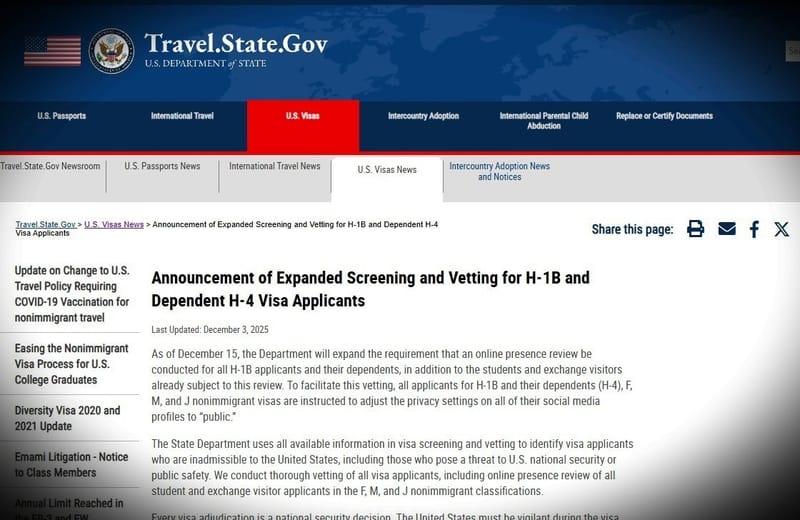Study: Indian Immigrants Bolster US Economy, H-1B Cuts Risk $4 Trillion National Debt Increase
This study provides a compelling economic case for the positive contributions of skilled immigrants and underscores the substantial financial risks associated with restrictive H-1B visa policies.
Subscribe to our newsletter and stay informed about latest H1B news, policy updates and and other developments.
Article Summary
A Manhattan Institute study indicates Indian immigrants significantly benefit the U.S. economy, reducing national debt by $1.6 million per person and boosting GDP. The research further warns that ending the H-1B visa program could add $4 trillion to the national debt over 30 years and diminish economic output. Additionally, the study analyzed the economic impact of removing Green Card per-country limits, suggesting it could increase debt and shrink the economy.
Original Article: outlookbusiness.com
[ Sentiment: neutral | Tone: factual ]
This summary and analysis were generated by TheNewsPublisher's editorial AI. This content is for informational purposes only; it does not constitute legal or immigration advice.
[ Sentiment: neutral | Tone: factual ]
This summary and analysis were generated by TheNewsPublisher's editorial AI. This content is for informational purposes only; it does not constitute legal or immigration advice.
TNP AI: Key Insights
This research offers critical data for policymakers and employers, quantifying the significant economic benefits that skilled immigrants, particularly from India, bring to the U.S. economy and national budget. The findings directly challenge narratives that suggest skilled immigration is a drain, instead highlighting its role in reducing national debt and boosting GDP.
The study's warning about a potential $4 trillion increase in national debt from ending the H-1B program serves as a stark reminder of the economic consequences of policy changes, especially amid discussions of stricter immigration measures like higher H-1B fees. Its analysis of per-country limits on Green Cards also illuminates how current policies create unnecessary delays for highly skilled professionals, hindering their full economic contribution over decades.





